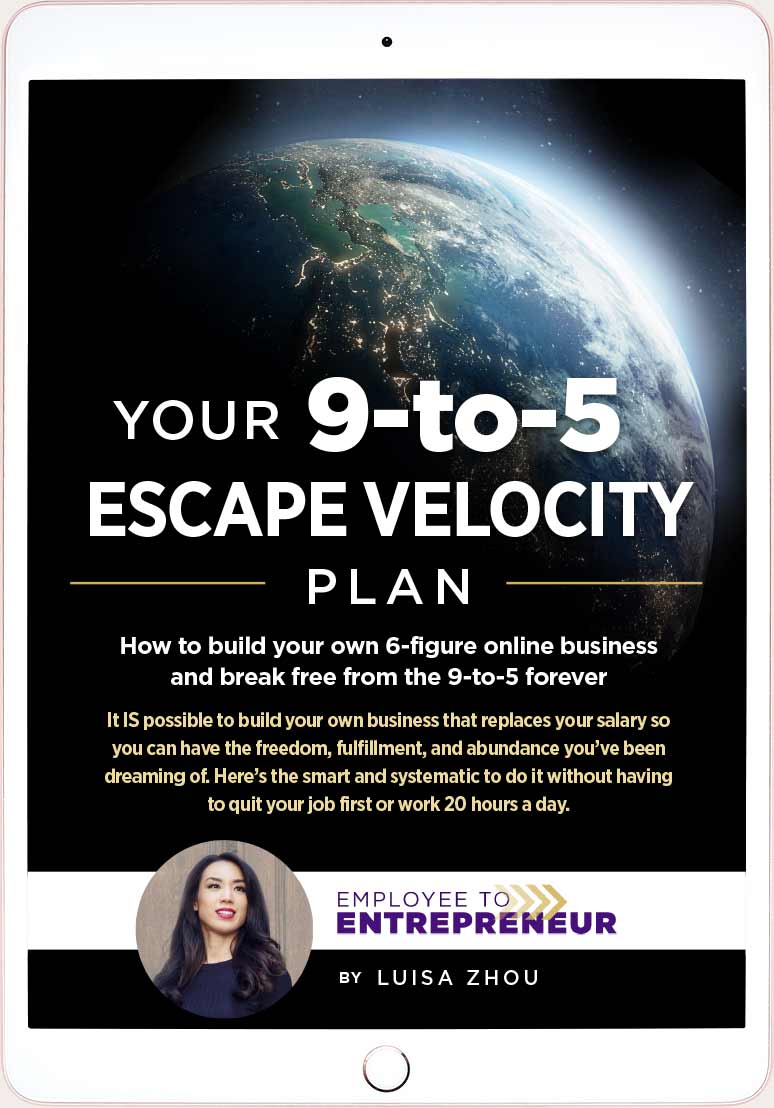How do coaching vs. consulting compare?
The two are very different…but also similar. Both of them focus on helping their clients get results, even if their strategies are sometimes different.
Want to learn how coaching and consulting work? Read on!
You’ll learn:
- What is coaching?
- What is consulting?
- Coaching vs. consulting
- Who should people hire?
- Can you be a consultant and a coach?
- Coaching vs. consulting salaries
What is coaching?
The definition of coaching has evolved a LOT over the past five to ten years.
You see, the International Coaching Federation defines coaching as “partnering with clients in a thought-provoking and creative process that inspires them to maximize their personal and professional potential.”
In other words, a coach helps people to:
- Make progress
- Reach their goals with action
- Offer advice and guidance
- Get past limiting beliefs and blocks that are holding them back
While this is true, coaching used to be exclusively based on “Socratic questioning.” Today, the industry has evolved into something that mixes traditional coaching with traditional consulting.
Because sometimes you need to let your client solve the problem themselves. But sometimes, you as a coach can give them the answer they need based on your experience.
That said, they’re not the same thing and the terms aren’t the same thing.
The way I see coaches work with their clients is by:
- First, getting to know their client on a personal level and helping them figure out exactly what they want
Get the Ultimate Guide
for building a
6-Figure Coaching Business so you can achieve more freedom! - Creating a tailored plan for their clients to guide them achieve their goal
- Along the way, helping clients overcome any personal challenges and finding other ways to achieve their goals if something isn’t working
Ultimately, coaching is on the rise – there are over 71,000 certified coaches worldwide, and they’re in high demand. Over 1 million searches are made each month for life, business, and executive coaches.
And coaches work with clients in all types of niches, including:
- Business coaching
- Financial coaching
- Career coaching
- Life coaching
- Executive coaching
- And more
Finally, here’s a more in-depth take on how I’d define coaching today:
Now you know what coaching is. Next, let’s take a look at consulting.
What is consulting?
Consultants offer expertise in exchange for a fee. The services can include advice and/or require the consultant to implement solutions.
A coach also provides guidance and advice, but there’s one big difference:
Coaches leave room for clients to find their own answers.
Consultants assess business problems and tell the client what the goal is and how to reach it.
And the market is massive – consulting is a global market worth more than $700 billion, with consultants specializing in disciplines like strategy, marketing, and finance.
But how do consultants work?
While it depends on the consultant, they could approach projects by surveying and conducting interviews and setting up a tailored strategy to help clients get to their goal as fast as possible. When necessary, they adjust their strategy.
Now you know what coaching and consulting is. Next, let’s take a look at the specific differences between the two.
What are the differences between coaches and consultants?
So, a coach and consultant still seem to have a lot of overlap, right? Sort of.
They both help their clients get results. They both require strong interpersonal, communication, and leadership skills.
But coaching, especially coach-sulting, can be so much more than “just” coaching or consulting.
While consultants can make a huge difference in their client’s business, coaches can completely transform the way their clients approach their business (or other goal).
Just look at Bill Campbell, who was an executive coach in Silicon Valley until his death. He worked with people like Steve Jobs, Sheryl Sandberg, and Jeff Bezos, just to name a few.
But he didn’t just talk about strategies – because he wasn’t a consultant.
Instead, he helped them focus on learning to make better decisions for themselves, their teams, and their businesses as a whole. In fact, one of his principal beliefs was to help his clients find the best answer for them.
When he worked with his clients, it was about helping them grow themselves rather than their profit margins…Although his coaching did help do exactly that.
Now that you understand how coaching vs. consulting differs from each other. Next, let’s take a closer look at the key differences between coaches and consultants.
Consultants focus on the business, coaches focus on the person
Coaches help their clients work through intimate issues, such as health and wellness, relationship building, and finance. Unsurprisingly, they’re closer to their clients than a consultant would be.
Consultants are there to focus more on the business side of things. They typically only assist a client with problems or roadblocks that directly impact their organization, such as strategy, leadership, or IT issues. They tend to work directly with leadership teams versus any one person.
Coaches get to know their clients on a more personal level
On that note, coaches (unsurprisingly) take a far more personal approach to working with their clients than consultants do.
Consultants are highly data-driven to find the problem and determine a solution.
Coaches, on the other hand, tend not to rely exclusively on data (or any data at all, depending on the type of coaching).
Instead, they send out an intake form before they even get to know the client. This form allows them to get some insight into who the client is, what they’d like to see change, and why they need help reaching their goals.
That’s not to say coaches never administer assessments. But coaches are more likely to also rely on the meaning of the answers and not just data found there.
It’s also important to note that consulting is typically a project-based service, meaning that a consultant works with a client for a predetermined length of time.
Get the Ultimate Guide
for building a
6-Figure Coaching Business so you can achieve more freedom!
On the other hand, coaches are providing a transformational service that helps a client learn to coach themselves. Oftentimes, this has no real timeline and doesn’t have to end when a goal is reached. Some coaches work with a client for far longer.
(However, I do recommend coaches to always start with coaching packages as they give structure to coaching programs.)
A coach will guide, not tell
Consultants are experts in the area that a client has hired them for help in, but a coach acts as the client’s mentor.
Look at it as an “I know vs. you know” approach.
A consultant is an expert, which means they know the answer while the client doesn’t. Because of that, they simply tell them the answer.
A coach, however, believes that the client has the answer within them. After analyzing the situation, they help the client find the answer on their own.
Coaching is similar to mentoring
While their coaching skills and results matter, what really matters is that a coach has personal experience in the area the client needs guidance.
During their time with a client, coaches are able to act as a mentor because they’ve accomplished the very task their client is working toward.
Business consultants, on the other hand, are experts in a field. They can offer tangible advice and help clients make a change quickly.
Who should clients look for, though – a coach or a consultant? Here’s what you need to know.
How do people choose if they should hire a coach or a consultant?
Because they often feel similar, a lot of people have trouble deciding between hiring a coach or a consultant.
At the end of the day, it depends on what the client wants to get out of their experience.
As a coach, you’ll be helping clients find their own answers.
Everyone you work with will be dedicated to taking things into their own hands in the name of personal growth, whether personally or professionally.
As a consultant, you’ll be helping clients by giving them the answers on a project-by-project basis.
Your clients will be looking to make a change but would rather be told how to do so than find their own way.
Next, let’s talk about whether you can do both coaching and consulting, or if you’re restricted to one of them.
Can you be a consultant and a coach?
With the overlap in coaching and consulting, you might be wondering if it’s possible to do both.
Yes!
Coaching and consulting both have their pros and cons, and many coaches use the best of both to get great results for their clients.
Ultimately, that’s “coach-sulting,” the coaching style I prefer to use with my clients.
In traditional coaching, a client gets no answers.
But with coach-sulting, I give my clients a few of the answers in order to get them faster results.
For example, I might say to my clients, “I’ve been through this as well. If you want to become a more natural leader, this is what I recommend…”
This approach allows you to help clients reach their goals more quickly and effectively and see more sustainable results.
Coaching vs consulting salaries
Now you might be thinking:
Is there a difference in coaching and consulting salaries?
The average consultant in the US makes just over $73,000, whereas the average coach sees an income of about $67,800 working part-time (11.9 hours per week), according to the 2023 ICF Global Coaching Study.
That’s the average, though.
Both consultants and coaches can make six or seven-figure incomes with the right Freedom Business.
I talk more about Freedom Businesses here.
Over to you!
There you have it! Now you know what coaching vs. consulting is.
Get the Ultimate Guide
for building a
6-Figure Coaching Business so you can achieve more freedom!
There’s a lot of overlap (especially in terms of coach-sulting and consulting).
Now I’d love to hear from you:
Have you tried coaching or consulting? What worked for you and what didn’t?
Let me know in the comments!
Learn more:
What is Coaching? Coaching Definition









2 Responses
Great assessment! I am very excited to add this information to what I already have developed for my Consulting. It was clear, and has helped me to clarify, and gain confidence that I was already on the right path. Thank you for sharing!
You’re welcome! 🙂